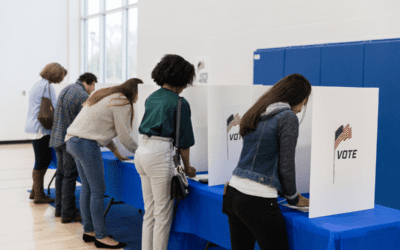
#image_title
Republicans will waive waiting period for unemployment if they can take more power from Evers and slash spending anywhere they wish
A bill being drafted by Republican lawmakers that is intended to provide relief to state residents in the wake of the COVID-19 pandemic grants greater authority to the powerful, Republican-led budget-writing committee to cut funding to schools, healthcare and most state agencies.
The move to include what Democratic Gov. Tony Evers’ office described as “nonstarters” in a coronavirus relief bill comes a day after Wisconsin made national headlines for holding its primary election in the middle of a pandemic.
Similar to the inability of Evers and the GOP-controlled Legislation to work together to move the election date, the stalemate over passing a coronavirus relief bill is the latest example of the governor and lawmakers inability to work together even during a crisis.
“I’m asking for the legislature to take politics out of this proposal so we can move forward on addressing the needs of our state,” said Evers in a statement. “We have work to do, folks. We don’t have time to play politics and this provision won’t do anything to help our state to respond to COVID-19 or to help our families struggling during this crisis. It is time to get serious.”
Evers indicated Wednesday he would veto the bill if the provision granting more power to the budget committee remained in the bill.
“For almost a month we have been at work on a bill that includes essential provisions dealing with everything from Medicaid to the first week of unemployment. Millions of relief dollars are at stake for Wisconsin,” said Senate Majority Leader Scott Fitzgerald in a statement. “Suggesting he’ll veto the full bill publicly, while privately we’re still negotiating, is irresponsible. We’ll keep working with the minority party to put together a bill that can hopefully pass soon with bipartisan support.”
State residents and businesses have yet to receive any financial support for lost wages or revenue since the coronavirus first began infecting people in the state. Evers declared a public health emergency in Wisconsin March 12 and issued a safer-at-home order took effect March 25.
To date, 104 people have died in the state from the virus and 2,756 have tested positive, according to the state Department of Health Services.
“A day after blatantly endangering and disenfranchising Wisconsin voters, Republicans have released details of their COVID-19 relief bill that contains provisions to allow Republicans on the Joint Finance Committee, who represent less than one-quarter of the state, to make unilateral and deep spending cuts that impact the entire state,” said Sen. John Erpenbach, D-West Point, a budget committee member. “This includes cutting funding for K-12 education, after spending months touting their so- called ‘record investments’ in our schools.”
While the Republican bill includes what Evers called non-starters, it also includes two key provisions that Evers support.
One is the temporary waiver of a one-week waiting period for people to collect unemployment insurance in Wisconsin. The other would also provide a temporary waiver to the requirement that childless adults on the state’s Medicaid program pay a premium.
Waiving the Medicaid provision would allow the state to claim an extra $150 million every three months in federal aid for state Medicaid programs.
On top of granting the budget committee the ability to cut any spending it wants without Evers’ approval, the bill would rescind a 2 percent across-the-board raise for state workers set to begin in January if the state faces a deficit in the next fiscal year. It would also provide civil liability exemptions for manufacturers of medical supplies and equipment, and provide immunity from civil liability for healthcare professionals during the public health emergency.
The bill also would require hospitals, isolation facilities and any other facility that provides hospitalization for patients to provide daily and weekly reports on the number of patient beds and ventilators and grant the state health department the authority to withhold federal funds for noncompliance.
The bill would reduce the required hours of instructional training for certified nursing assistants from 120 to 75 hours. Republicans unsuccessfully attempted to override an Evers veto to a similar bill during the legislative session that ended in March.
“This is politics and people don’t want to see politics at play during a response to a public health emergency,” said Melissa Baldauff, a spokesperson for the governor. “He wants to be able to consider what the Republican are putting together but he needs them to take the politics out of it.”
Evers first introduced a draft of his own COVID-19 relief package March 23. His proposal called for $700 in spending, with $500,000 of that going toward the state health department to “enter into contracts, conduct investigations, facilitate research and purchase products,” without approval from the budget committee.
Republicans have indicated that is a non-starter for them.
On April 1 Evers released more details of his relief package. It included a $94 million increase to hospitals, home care providers and hospice workers who care for Medicaid patients to cover staff overtime costs associated with the COVID-19 outbreak.
The Evers bill would also provide grant funding for small businesses and workers through the Wisconsin Economic Development Corp., provide a COVID-19 reinsurance program to reduce health insurance premiums, waive interest and penalties on delinquent property taxes and provide supplemental payments to child care providers who have had to shutter their doors due to the public health emergency.
Republicans at that time said they wanted to wait on considering the governor’s proposal until the federal package was approved before approving any state legislation that would allocate funds.
Two weeks ago, the $2.2 trillion Coronavirus Aid, Relief and Economic Security, or CARES, Act passed.
According to a memo from the nonpartisan Legislative Fiscal Bureau, Wisconsin could receive about $2.26 billion, with roughly $1.9 billion going directly to the state government.
The remainder of the federal funds would be dispersed to local governments with populations greater than a half-million people. That means the city of Milwaukee would receive $102.7 million, Milwaukee County would receive $164.5 million and Dane County would receive $93.4 million.
“Let’s be clear. This is not the time to make the Joint Finance Committee a mini legislature and this is not the time to go after the Governor’s ability to do his job,” Erpenbach said. “We are in the midst of a global pandemic …. Wisconsinites need relief now, not more political games.”

Opinion: Many to thank in fair maps victory for Wisconsinites
On February 19, 2024, Governor Tony Evers signed into law new and fair state legislative maps, bringing hope for an end to over a decade of...

Opinion: Empowering educators: A call for negotiation rights in Wisconsin
This week marks “Public Schools Week,” highlighting the dedication of teachers, paras, custodians, secretaries and others who collaborate with...

Op-ed: Trump’s journey from hosting The Apprentice to being the biggest loser
Leading up to the 2016 election, Donald Trump crafted an image of himself as a successful businessman and a winner. But in reality, Trump has a long...

Not just abortion: IVF ruling next phase in the right’s war on reproductive freedom
Nearly two years after the US Supreme Court overturned Roe v. Wade, another court is using that ruling to go after one of the anti-abortion right’s...




